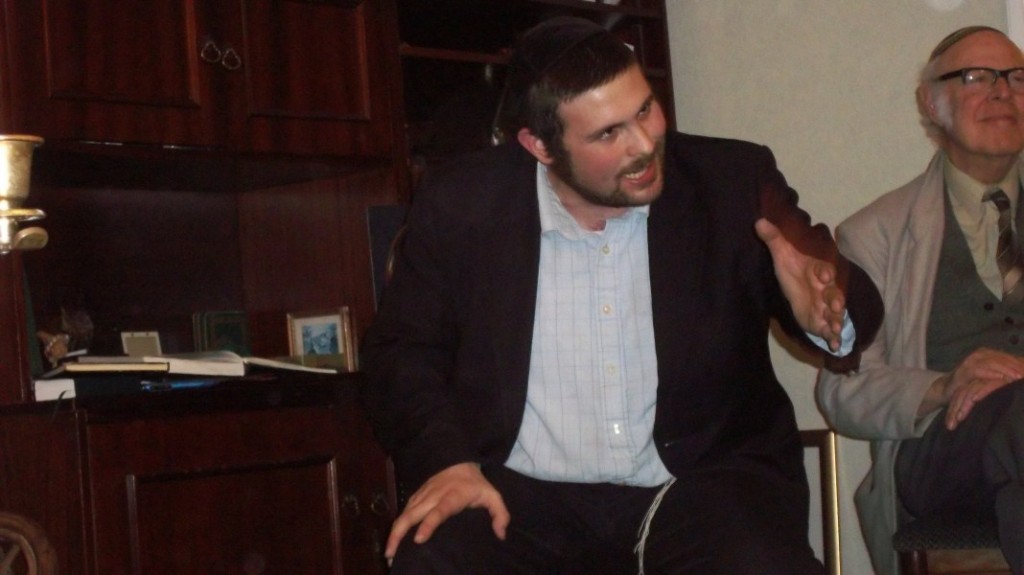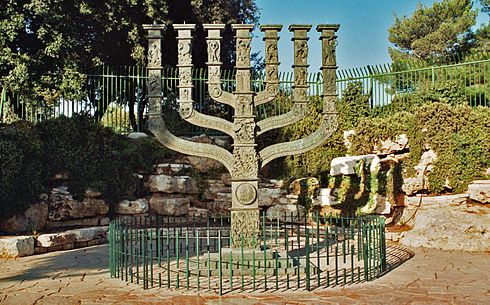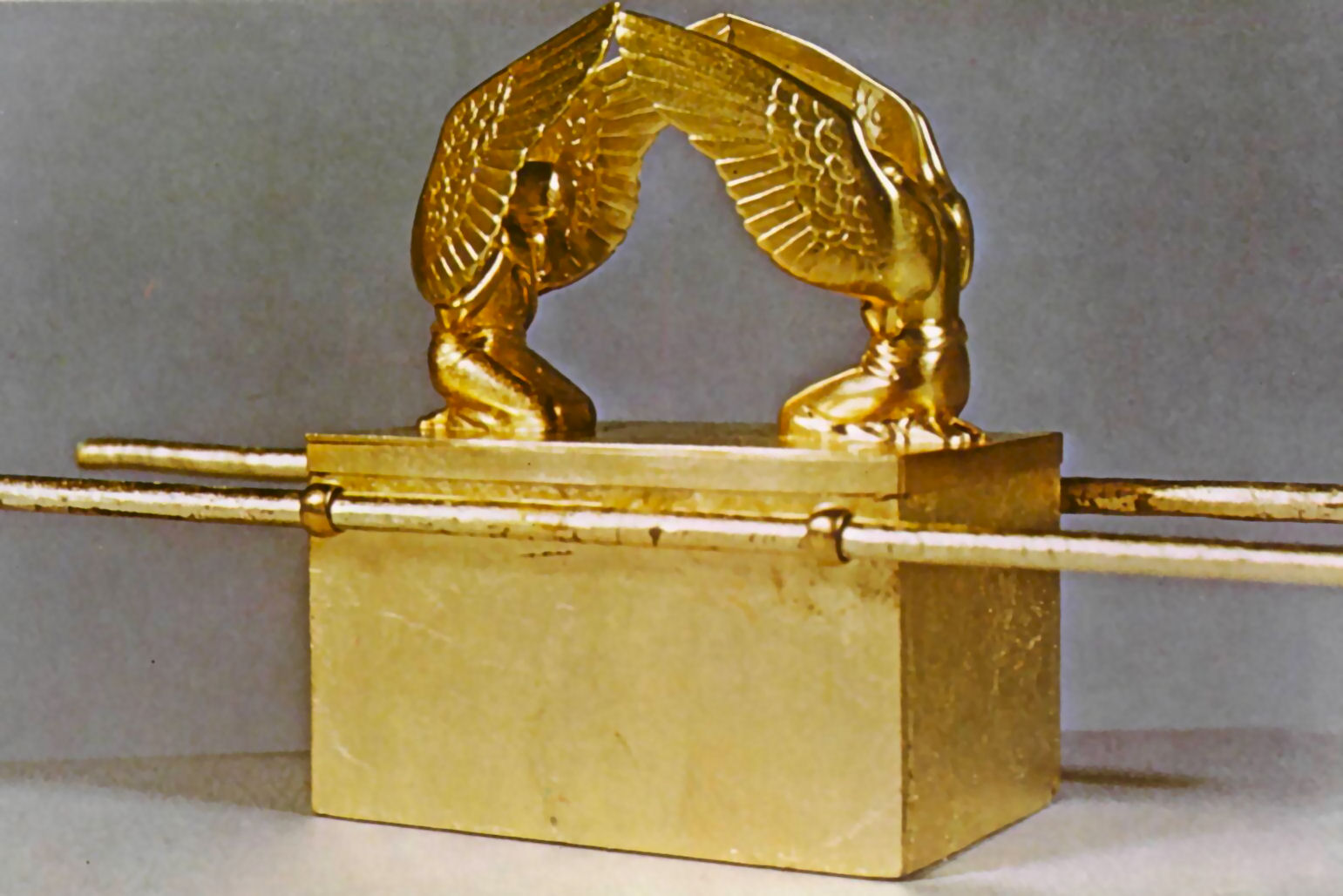Author: admin
Click to listen to A shiur I delivered in Southport Rosh Chodesh Sivan about the Torah
Click to listen to my South Carolina Shiur on Moshe Rabbenu leadership
Click to hear my Radio Apperance – I have a great face for it!!!
http://methodistpreacher.blogspot.com/2011/07/wonderful-methodist-fringe-event-at.html
Not everyone can say that ‘ People would like to have ministers like me’
http://methodistpreacher.blogspot.com/2011/07/wonderful-methodist-fringe-event-at.html
Tuesday, 5 July 2011
Wonderful Methodist fringe event at Southport synagogue
Congratulations and thanks are in order to the Jewish British Board of Deputies and our own Methodist external relations department who came up with the idea of a Jewish cultural evening and seder meal as a fringe event to our own Methodist Conference.
The local synagogue in Southport pulled out all the stops and made us feel very welcome. I was, incidentally, very touched by the personal invitation from members of the Jewish community despite not being a conference delegate.
There were about 120 delegates present making it one of the biggest fringe events ever held at a Methodist Conference in living memory. Rabbi Saunders – please G-d let us have Ministers like him – introduced us to the fabric and layout of the synagogue. Much of what he said resonated with members of a denomination which started worshiping in fields and barns.
The Rabbi then led us into the community hall where there was an exhibition on the Jewish Way of Life (by the way this will be open again this evening for delegates who didn’t make it last night). We then sat down for a splendid meal as the Rabbi explained each element of the meal, and described how they mixed worship and education with food, much like a good Alpha course!
We then had short speeches from the local chair of district, the vice president of the BOD and the head of our external affairs department. They described the painful journey from last year’s awful conference (my word, not theirs) when relations between the two communities had broken down following the disgraceful (again my word not theirs) acceptance by conference of the “report” on Palestine and Israel.
Since then there has been a series of meetings which have now enabled a dialogue to get underway. Last night’s meal would have been impossible during last year’s conference and we must hope and pray for better understanding between the tow communities.
Parshas Beha’alotcha
In this week’s sedra the Jews complained about their lack of good food. They recalled all the delicacies of Egypt and asked specifically for meat. Hashem eventually gave meat to them but killed them all after a month.
Question 1
How could the Jews be so ungrateful as to complain and ask for meat? After all, they had everything they needed handed to them on a plate.
Question 2
Why does the Torah use the expression (ch 11 v 1) ‘The people were LIKE COMPLIANERS’? Surely they were complainers!!!!
Answers
I think these questions can be answered as follows:
The Rabbis tell us that there are 13 expressions of prayer (midrash shimonei beginning of parshat vo etchanan). Each expression denotes a different aspect to prayer and all of them can be used. The midrash recounts all the instances where they were used in the bible. Here are there English equivalents;-
Talking,
Asking,
Supplicating,
Begging,
Screaming,
Demanding,
Praising,
Pleading,
Arguing,
Persuading,
Reasoning,
Extolling,
Crying
(explanations of these expressions is beyond the scope of this work at the moment)
Moshe used many of these expressions to intercede to Hashem on behalf of the Jews. After the Jews made the golden calf He reasoned with Hashem not to destroy the Jews on account that the nations would think G-d was too weak to bring the Jews to the land of Israel.
This is what I believe the Jews were doing in this instance. They tried to reason with Hashem that if in the slavery of Egypt they had meat then how much more so in the utopic situation of the desert they should enjoy the same delicacies.
This is why the Torah uses the expression ‘like complainers’ because they were not really complaining. However, they still sinned on their exulted level because they should have been contented with their lot.
This is how we can understand all the other instances that the Jews complained. On many occasions when faced with either no water or with on rushing enemies they reasoned
‘What was the point of leaving Egypt to die in the desert, we might as well return’
This was not a statement of ungrateful people but rather a plea of reasoning and persuading Hashem to answer their requests.
The Rabbis in their great wisdom have advised that people should not reason with Hashem nowadays. This is because the line is so thin and it is easy to cross over to the realms of sin.
Parshas Shmini
Parshas Shmini.
On the 1st of Nissan 2449 in the Sinai desert tragedy struck. On what was supposed to be one of the happiest days in Jewish history with the residing of Hashem’s Shechina
on earth, Nodov and Avihu were consumed by fire in the Mishkan. They decided to mark this momentous day by offering up their own pan of Ketores (frankincense). The Talmud in Eruvin 63a says they derived this from the verse in Vayikro (1 :7): “And the children of Aaron should place fire on the Mizbaiach.” Nevertheless, they incurred the death penalty for deciding a halachik point in front of their teachers, Moshe and Aaron.
It is interesting to note that the Midrash offers a slightly different explanation. The Midrash Tohras Cohanim says that the fire did not descend at first. Nodov and Avihu exclaimed, ‘‘How can one cook without a flame?” Then, they kindled the fire themselves. At that point the heavenly fire descended and consumed the Mizbaiach together with Nodov and Avihu. Their souls burned, but their bodies remained whole.
There are several other reasons why Nodov and Avihu received the death penalty. These include:
1) Not honoring their father by consulting him before offering up the Ketores,
2) Drinking wine which renders a priest unfit for duty,
3) Entering the Holy of Holies, which is only permitted by the Cohen Gadol and even then only on Yom Kippur,
4) Failing to pour water over their hands and feet prior to entering the Mishkan, and
5) Not wearing the special Priestley clothes.
However, let’s not forget that Nodov and Avihu were great tzadikim. The Talmud says they had it in themselves to become great leaders of the Jewish people. Their names depict this. Nadav comes from the word “nedivus,” which means nobility. Avihu can be read as ‘‘av-hu,’’ meaning he was a father and could have been a father to the whole nation. The passuk (10:3) later describes them as “bekroivay,” meaning friends of Hashem. This is fitting as they were the sons of Aaron Hacohen and nephew to Moshe, the leader of the Jewish people.
Therefore, how could such great tzadikim commit this sinful act and incur the death penalty?
They were holy men yearning for Kedusha at every moment, similar to metal drawn to a magnet. Once Hashem’s Shechina descended they could not help themselves. Their souls were pulled towards the Shechina. They felt the need to offer Ketores as a way of serving Hashem, the life source of the world.
Nevertheless, this is not what Hashem desires from us. It is not fitting that everyone has access to serve a king. Only the select few have the privilege of serving him. This is especially true when serving Hashem, the King of Kings. Only those people appointed can enter into his Holy Service. Perhaps we can now offer a different understanding in the verse, “bekroivay ekodeish” (10:3). This is usually understood as a consolation to Aaron on the death of his beloved sons. Moshe tells him that Hashem had previously told him that His name would be sanctified through his close ones. Moshe always thought it would be himself or his brother Aaron. When he saw Nodov and Avihu were sacrificed, he realised that they were even closer to Hashem than himself and Aaron. Now we can say it means, ‘‘With my called ones.” Moshe explained to Aaron that only people that Hashem called to serve Him were permitted to do so, regardless of how great they were.
This is why when Hashem wanted to speak to Moshe by the burning bush it first says, “Vayikra” (Shemos 3:4) “And he called to Moshe,” and afterwards He spoke to Moshe. One has to first be called by Hashem before He interacts with a person and appoints him or her as His messenger. The word ‘Vayikra’ is also repeated at the start of Sefer Vayikra. That is perhaps why people refer to the job of a rabbi as a calling. They are called by Hashem to do his special work.
We find another similar circumstance by Matan Torah. Hashem told Moshe to warn the people not to ascend Mt. Sinai. He later tells Moshe to surround the mountain with gates and barriers to stop the people from ascending the mountain. The passuk says, “Go warn the people lest they surge forward past the barriers to see: many of them will fall” (Shemos 19:21). The usual way of understanding this passuk is that people might surge forward past the barriers to get a look and will ultimately be liable for death as Hashem told them not to ascend.
Rabbi Ezriel Tauber shlita offers a different explanation. He says that Hashem told Moshe that the reason for the ban on ascending is to prevent others from spiritual demise. It is normal to expect that whilst seeing the divine revelation and yearning for that Kedusha, people may want to surge forward. The soul would then break past all bodily barriers that hold it down and try to connect itself to the Shechina. However, they will subsequently fall. People cannot sustain a heightened spiritual level for very long. Indeed, the Jewish people as a whole were unable to maintain it. Just a few short weeks later they erred by making the golden calf. It’s like the old cartoons where a character runs at hyper speed off of a roof top. He keeps running on thin air for a few steps. Then, when he sees he is walking on air, he drops rapidly to the ground. What goes up must come down. Artificial highs never last, no matter what the high is, even in spirituality. The only way to properly rise to a higher spiritual level is on solid foundations. Every sky scraper is built from the bottom up with a strong foundation. The crane is only jumped and moved on to the higher floor when the lower floor is completed, checked, double checked and inspected. The Mesillias Yeshorim quotes the Talmud (Avodoh Zoroh 20b) and lists 12 levels of spirituality that a person needs to ascend. Each level has to be understood and mastered before the next level can be attempted.
Returning to Nodov and Avihu, they should have withheld their urges. Infact, the connection to Matan Torah goes a bit deeper. The Midrash says that although Nodov and Avihu enjoyed the Shechinah by Matan Torah, they received the death penalty because they displayed levity. Hashem did not want to dampen the spirits of the Jewish people so he waited till a later time to exact punishment. The passuk in Devarim (4:24) says, “Hashem is a consuming fire.” Only those properly trained can deal with fire.
In conclusion, we see from this week’s sedra the importance of remaining calm and consistent on one’s spiritual journey. One must not get despondent that he is growing too slowly. One must slowly master all levels before he can truly rise safely into the spiritual spheres. There are no quick fixes. It is a slow process that takes a lifetime. As long as steps are made towards reaching this goal – even tiny steps – and progress continues, then that is satisfactory enough.
Parshas Ki Tiza
This week we read about the tragic sin of the Golden Calf. Let me explain this sin as a primer for the video: The Jews miscalculated Moses’ descent from Mt. Sinai by one day. Remember, G-d called him up to the mountain to receive the physical tablets with the ten commandments written on them. The Jews knew he would be on top of the mountain for 40 days and 40 nights. Since Moses was running a little late, they lost faith and believed he died on the mountain. Therefore, they needed someone, or rather something, to be the intermediary between themselves and G-d. They pooled together all their gold from jewelry, mirrors, and the like and melted it down. Then they formed a calf from this gold and worshiped it. My response to this is in the video.
We also learn a tremendously powerful message about Jewish unity from the composition of the frankincense, a combination of spices the Jews were commanded to burn as an offering to G-d.
Parshas Vayeshev
Parshas Vayeshev
This week’s sedra contains one of the most misunderstood episodes in the Torah. It would appear on face value that 10 of the sons of Yaakov despised their own brother Yosef. They tried to kill him by throwing him into a pit. Eventually, they sold him to a group of merchants travelling to Egypt.
There are numerous questions to be asked on this:
1) How could Jacob show favoritism to one son by giving Yosef a multicolored coat (37:3)? He, having experienced the hatred of his brother, Esov, should have known better.
2) Why was Yosef “fooling around with the children of Bilha and Zilpah” (37:2)?
3) Why did Yosef report all the brothers’ evil plans and actions to Yaakov (ibid)?
4) How could future leaders of the tribes of Israel commit such an act?
The answer I would like to give is based on the sefer “Vayeifk Yossef” written by
Reb Leib Friedman which goes through all the Midrashim and Talmudical sources to deduce the following explanation.
Yosef was a very pious man. We know this from how he managed to spurn the advances of Potifar’s wife when he was a servant at her house in Egypt. . He was able to knock her back even when she clung on to him. Yosef steadfastly kept his Yidiskeit even in lowly Egypt, which was perhaps the most spiritually deprived country at the time steeped in witchcraft and magic. When the Jewish people eventually left on seder night, our Rabbis tell us they were at the 49th and penultimate level of tumah, spiritual impurity.
Yosef is known as “Yosef Hatzadik” Yosef the righteous man. However, he was very humble and tried to hide his good deeds. He did this by goofing around with his brothers and by spending time in the mirror apparently beautifying himself and playing with his hair which gave of the impression he was not spending his time studying Torah. In fact he was studying even as he carried out mundane activities.
However, he was so good at hiding his greatness that even his own family were fooled. They thought he was the”black sheep” of the family. Yaakov thought that just like his father and grandfather had wicked sons, so did he with Yosef. Yosef’s brothers were also concerned with this.
Therefore, they formed a plan. There are two main ways to help children who go off the path and need extra help.
1- Show them extra love, attention and hope this will help turn the child back to the right path.
2- Distance oneself from them, which will shock them into behaving.
Yaakov, being the father, decided to adopt the first approach and show Yosef extra love and attention. He made for him a beautiful multicolored coat made from the finest delicate wool. He gave him extra tuition and taught him all the special parts of Torah he had learned in the Yeshiva of Shem and Ever when he studied there for fourteen years prior to his meeting with Lavan. He hoped he could nurture him into becoming a true tzaddik. This approach works on the premise that one shows how much they care about the other person including his spiritual wellbeing. We show them that we believe the best way of having a good and meaningful life in this world, as well as in the world to come, are by keeping the Torah and being a good Jew. We show them we want them to share in the happiness and reward that awaits us all.
“And the brothers saw that their father loved them more than all his brothers so they hated him and weren’t able to speak nicely to him” (37:4).
Having seen Yaakov adopt the first method and seemingly fail, the brothers adopted the second method of pushing Yosef away. They hoped that by showing him they wanted nothing to do with him, he would change his ways. Perhaps he would be shocked into changing his ways and behaving like a leader of one of the twelve tribes of Israel should.
“And Yosef dreamed a dream and told his brothers” (37: 5). This was like a dagger into the hearts of the brothers. After all Yaakov’s efforts to show Yosef extra love and affection and the brothers efforts to shun and spurn him, Yosef still had visions of grandeur. Their attempts to mould him into a righteous man fitting to be a leader of Israel had seemingly failed.
Therefore, it was time for “plan B”. The brothers now thought that Yosef would turn out like his uncle Esov and great uncle Yishmael both of whom were wicked men until they repented just prior to death. Taking a lead from their grandfather Avrohom who banished Yishmael from his house, the brothers formed a plan to eradicate Yosef.
They voted him liable for the death penalty on account of the licentious gossip he constantly relayed to Yaakov. They reasoned he could cause Yaakov to curse them and ruin their chances of being leaders of Israel. Yosef was therefore a danger to them, and one is allowed to cause harm to another on grounds of self defence.
The Midrash tells us they first tried firing arrows at him from a distance not wanting to harm him with their own hands. When Hashem spared him from the arrows, they set vicious dogs upon him. Finally they elected to kill him with their own bare hands.
Reuven spoke up and saved Yosef’s life by suggesting they give him more time. Maybe a little “alone” time in a pit would do the trick. Hopefully Yosef would be spooked into realizing that he had to wake up and change his ways. This was to be his last warning.
In the end, the brothers sold him to merchants and got rid of him. If he was not going to conform then he had to be driven away as their great-uncle Yishmael was.
The brothers were still fearful of their father, Yaakov, so they made up a story of Yosef being savaged by a beast.
Hopefully, we can now see the brothers in a better light. After all, they all went on to be inscribed on the breast plate worn by the Cohen Gadol.
It also has to be stated that this episode was all the will of Hashem as we see by how the events unfolded. Yosef was to become viceroy of Egypt which would facilitate the Jewish nation ending up in Egypt and their subsequent redemption.
In relation to us here in 5774, there is an important lesson. We must not act hastily when it comes to major chinuch decisions. We have to evaluate each child and see what path works best for him. There is a proverb in Mishlei (22:6) “Educate a child according to HIS own path” No two children are the same. “Just like everyone’s face is different, so are their intellects and character “(Talmud). Sometimes a child needs extra love and affection, but not at the expense of other children.
Children can be scarred for life by their early experiences. Everyone wants to feel loved and appreciated. Every child wants to feel like the most important person in their parents eyes. Let us take the message of this week’s sedra and may Hashem grant us heavenly help in raising and educating our children to be good Jews and upstanding people.
By The Rabbi






